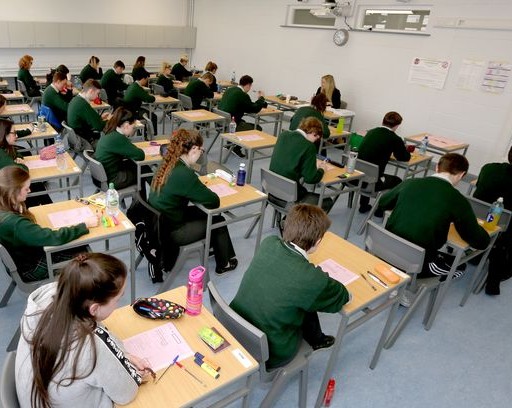Over the last four weeks, I had the privilege of hosting three members of the Badjao tribe from the Philippines in my house. I have worked closely with them over the last 10 years as part of a charity programme I organise for Catholic University School.
It has been one of the most rewarding aspects of my teaching life, I have always held the belief that to enjoy work you must find meaning in the work you do. For me, this project filled that philosophy more than I could have ever imagined all those years ago when I first set out on this mission with a small number of students and a wonderful parent.
This was the first time we have brought them to Ireland on a cultural exchange. As always, I feel slightly guilty leaving them in the knowledge that I have learned far more from being in their company than I could have ever taught them.
The Badjao are a small ethnic group that live above the shoreline in Davao. They are an incredibly loving people who open their heart to every aspect of life, the authenticity with which they live brings into focus the guard we have up in order to navigate western living successfully.
There is no doubt about it; being in their presence is a spiritual experience. Living with them for four weeks, (pictured right are Danilo Junari, Judy Araman, Jackilyn Araman at the Healy Pass), gave me a good insight into how they relate to one another. They never waste anything, and never ask for things they do not need.
Their relationship with food is one of the most striking features of their culture. They share every piece of food with each other and are always thinking about the next meal. It’s funny — I find myself often thinking about my grandmother when I’m chatting with them.
They remind me of her so much, her kindness and self-deprecating humour is very similar to the Badjao. When someone you love dies, you can really feel like you lose a piece of you that was unique to that relationship. But, that person is still with you — she is certainly with me and I see her in the Badjao and they help me to be close to her.
I’m always interested in how they view us. After a week of living with me and following me to work and seeing how I live, I asked them: “Well, what do you think of the way I live my life?”.
Their response wasn’t too surprising: “Oh, so fast, too fast, not good.” It’s hard to disagree with them. The Badjao have a special relationship with the sea. Their name translates as ‘sea gypsy’. Their fathers dive for pearls while their daughters sell the pearls to tourists.
But they spend the majority of the day together, preparing the food and sharing stories. That is sharply incongruent to how we spend our days. The mechanisation of our work has separated us from each other.
There is something incredibly distant and detached about how we are reshaping the dynamic of our world. Working in the mental health profession, I can’t help but think that we are removing ourselves from each other. And we are mammals, and mammals don’t do separation well. It’s hard not to wonder, in all this progress, are we creating a situation where we are isolated because we don’t have time to be together? There does seem to be a deepening disenchantment with the modern world.
As a systemic family psychotherapist, I wonder does this disenchantment emanate from the fact the family is under threat from this western desire for individualism?
Of course, individual freedom is an important pursuit, but excessive individualism, where we only consider ourselves, seems to be a feature of modern living. When I watch the Badjao, I see them working for each other, and in this I see their beautiful individuality.
Maybe that’s a paradoxical statement, but I wonder — can we truly be ourselves without an overarching set of shared moral values? Without that sense of togetherness? I think that’s why my grandmother comes to mind when I watch them sharing their food or working for each other because she so often spoke about the nature of communal living in Whitechurch at the turn of the 20th century. Where the Trashing was the expression of the shared complicity of survival.
And so, my time with the Badjao has come to end for another year. They always leave me with a new sense of self, a new sense of joy and appreciation for the family I have.
Of course, I couldn’t do any of this work without my wife who supports it all. The highlight of this trip was watching my children interact with the Badjao. Every morning I woke to the sound of rice being prepared and my children screaming as the Badjao showed them their traditional dance.
A magic time, a truly dignified and wonderful people, I feel so privileged to have been a part of it and know it will stay with me long into the future. When you find meaning in your work, you find enlightenment and joy.


